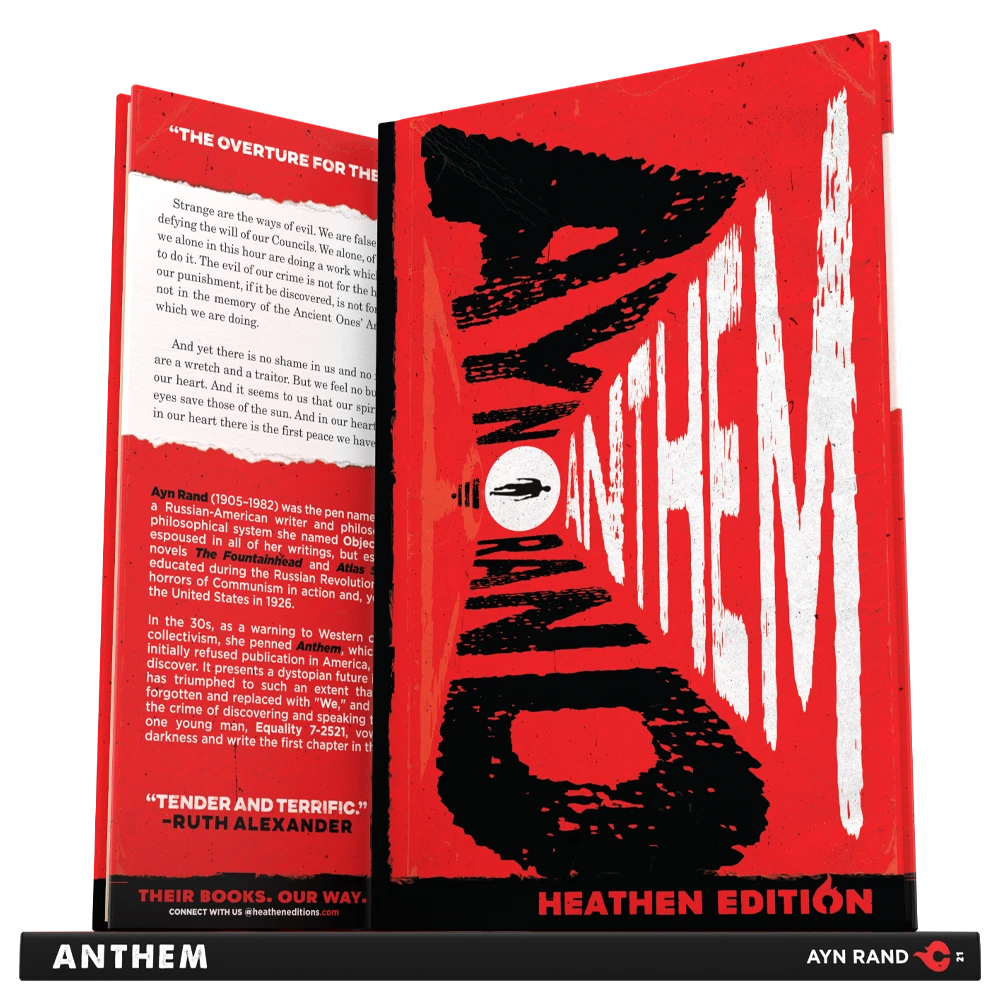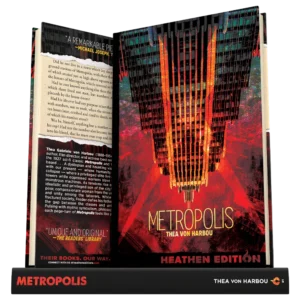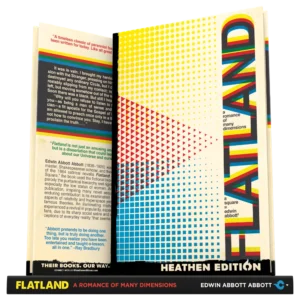No products in the cart.

Anthem
Spine #21
Author
Ayn Rand
Translator
First Edition
1938
Heathen Edition
February 21, 2021
Refreshed
February 14, 2024
Pages
100
Heathen Genera
Rebellion 101
Paperback ISBN
978-1-948316-21-7
Hardcover ISBN
978-1-963228-21-2
Strange are the ways of evil. We are false in the faces of our brothers. We are defying the will of our Councils. We alone, of the thousands who walk this earth, we alone in this hour are doing a work which has no purpose save that we wish to do it. The evil of our crime is not for the human mind to probe. The nature of our punishment, if it be discovered, is not for the human heart to ponder. Never, not in the memory of the Ancient Ones’ Ancients, never have men done that which we are doing.
And yet there is no shame in us and no regret. We say to ourselves that we are a wretch and a traitor. But we feel no burden upon our spirit and no fear in our heart. And it seems to us that our spirit is clear as a lake troubled by no eyes save those of the sun. And in our heart — strange are the ways of evil! — in our heart there is the first peace we have known in twenty years.
Ayn Rand (1905–1982) was the pen name of Alisa Zinovyevna Rosenbaum, a Russian-American writer and philosopher known for developing a philosophical system she named Objectivism. The tenets of which are espoused in all of her writings, but especially in her two best-selling novels The Fountainhead and Atlas Shrugged. Born in Russia, and educated during the Russian Revolution, she experienced firsthand the horrors of Communism in action and, yearning to escape, emigrated to the United States in 1926.
In the 30s, as a warning to Western civilization about the horrors of collectivism, she penned Anthem, which was published in England but initially refused publication in America, for reasons the reader will soon discover. It presents a dystopian future in which totalitarian collectivism has triumphed to such an extent that even the word “I” has been forgotten and replaced with “We,” and where men are put to death for the crime of discovering and speaking the “unspeakable word,” until one young man, Equality 7-2521, vows to illuminate the Collective darkness and write the first chapter in the new history of man.
Test Your Might
Paperback
OTHER RETAILERS
Rate & Shelve It
Hardcover
OTHER RETAILERS
Rate & Shelve It
"The overture for the Rand symphony."
James T. Baker
Heathenry
Contents
Praise
Details
Heathenry
Considering the short length of this novella, there wasn’t a lot for, ahem, we Heathens to edit. We have updated some hyphened words to reflect their modern usage, swapped a British spelling or two for their American equivalents, and corrected a couple of punctuation errors that we discovered in the original text. As for the text itself, we have hewed as closely as possible to Rand’s 1946 version that she revised for its first American publication. Additionally, we’ve kept the footnotes to a bare minimum, only adding them where we thought they were necessary.
Admittedly, we’re quite pleased that our editing can take a backseat to this story, because what a story it is! Rand was a firebrand, and when one considers this book in her chronology, one can surely see that she was only beginning to fan the flames of her Objectivism here. That the tomes The Fountainhead and Atlas Shrugged would soon follow should come as no surprise once you arrive at the end of this brisk tale.
Once there, we hope the lessons imparted will stay with you as long as they have stayed with us after closing its covers, for we’ve found Ruth Alexander’s summation to be spot-on: “You will think,” indeed.
Contents
Heathenry: A Note on the Text
Foreword
Anthem
Foreword
Anthem
Praise
“Anthem is a short novel, but for the young reader it offers exciting action, an appealing love story, and an interesting political philosophy.” —Tamara Stadnychenko, English Journal
“A surprising favorite among the high-school taste-makers is Ayn Rand’s Anthem . . . it enlarges upon ideas which are expressed in H. G. Well’s The Time Machine and implied in Aldous Huxley’s Brave New World; it might almost be an extrapolation of George Orwell’s 1984 — say, into 2084.” —Gerald Raftery, New York Times Book Review
“Tender and terrific — the greatest novel I have ever read, and I have covered the literary waterfront in seven languages. You will think — you will weep — you will be inspired to new determination not to let the creeping evil of collectivism happen here.” —Ruth Alexander
“Rand’s drive was born of anger; but anger cannot provide a person with a message. The germ of what would be her message can be seen in the passionate human struggles of her early stories; but it is only in Anthem that her message takes on it clear and distinctive form. While the players for her two great later novels are still embryos in this dystopia, Anthem is the overture for the Rand symphony composed of The Fountainhead and Atlas Shrugged.” —James T. Baker, Ayn Rand
“Small in length, Anthem is not small in subject. Even in a work designed for magazine publication, Ayn Rand was not capable of writing anything trivial, or of giving her ideas less than her best and fiercest efforts. In relation to The Fountainhead, Anthem is like one of those preliminary sketches that artists draw for their future large canvases.” —Shoshana Milgram, Anthem in Manuscript
Details
Anthem
Heathen Edition #21Format: Paperback
Interior: Black & White on Cream Paper
Pages: 100 (+2 POD)
Language: English
Annotations: 8 Footnotes
Illustrations: 7
The Heathen Newsletter
Want to be kept in the loop about new Heathen Editions, receive discounts and random cat photos, and unwillingly partake in other tomfoolery? Subscribe to our newsletter! We promise we won’t harass you – much. Also, we require your first name so that we can personalize your emails. ❤️
@heatheneditions #heathenedition
Copyright © 2026 Heathen Creative, LLC. All rights reserved.




